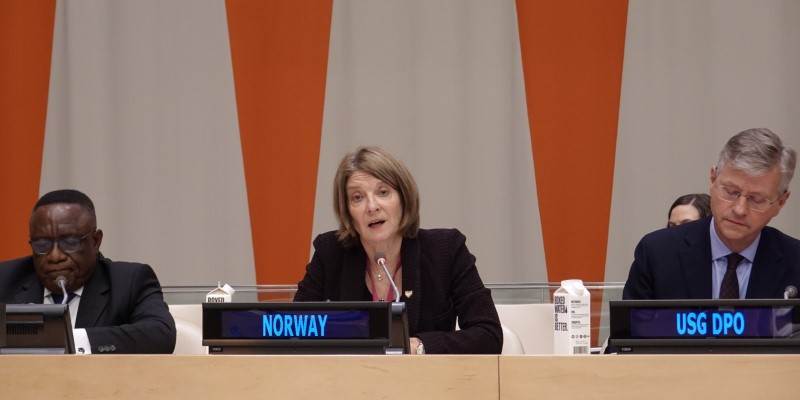Dear Colleagues,
It is a pleasure for Norway to host this seminar together with Ghana and the UK.
We are particularly pleased to do so in cooperation with: the Kofi Annan International Peacekeeping Training Centre, the International Peace Institute, and Wilton Park.
The Kofi Annan Centre’s presence here in New York is highly appreciated. The Center is a long-time partner for Norway in our consistent efforts to strengthen peacekeeping. We trust that they will provide input that can help move our discussions forward.
From Norway’s perspective, I would like to contribute with four points to our discussions:
First, that peacekeeping is very much a joint endeavour. One that cannot succeed without well-functioning partnerships. This has been clearly underlined in recent debates here in New York. The UN’s strategic relationship with the AU is a prime example. Norway is an active supporter of that relationship. Including through the AU/UN Group of Friends that we established this spring in Addis Ababa, together with Rwanda and other partners.
Second, partnerships ensure lasting political solutions. A key function of partnerships is the role they play in advancing enduring political solutions. But, for them to be truly effective, the engagement must continue well beyond the signing of peace agreements. We have seen this demonstrated time and again through our engagement in support of peace and reconciliation efforts in countries in conflict.
Third, there is a need for a holistic approach to security and stability. Politics is only part of the equation. I cannot emphasise enough the importance of also supporting reform of the security sector. To succeed, such reforms must include democratic oversight.
Finally, to solve conflicts and achieve lasting peace, we need to mobilize women, also as peacekeepers. As some of you will have heard me say this before. But, as Norway has experienced, for UN Member States to be able to deploy women internationally, a strong national base of female candidates is necessary.
In Norway we have made this a priority for many years, and have seen clear results.
Although, we too still have a way to go towards parity. Particularly in our armed forces.
Dear colleagues,
I mention these points only as a small contribution to today’s discussion. I look forward to hearing more from our wonderful panels, and all of you.
Thank you.
